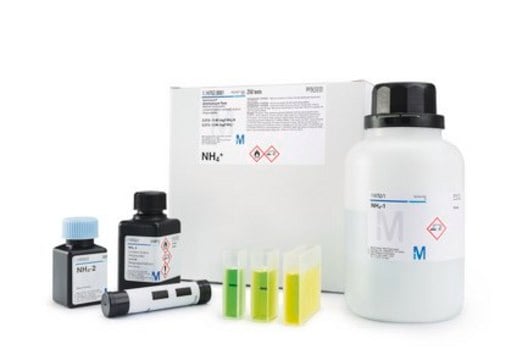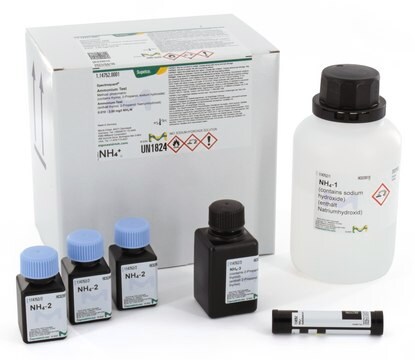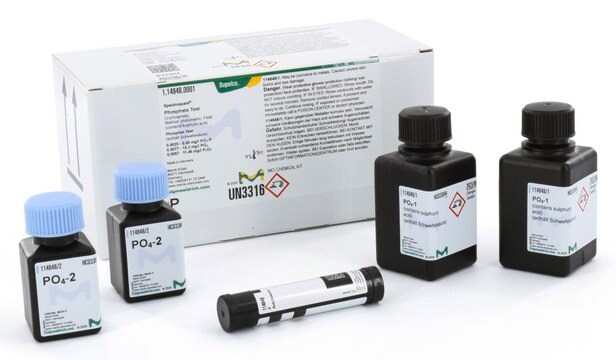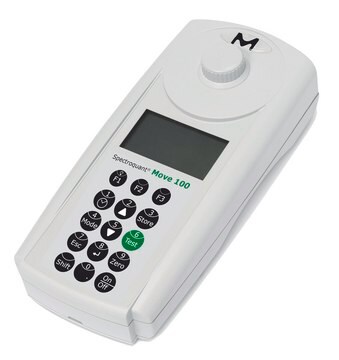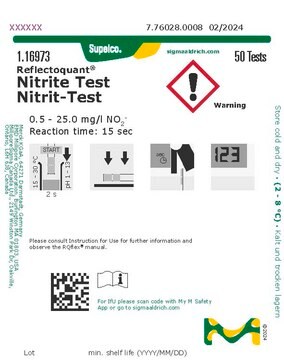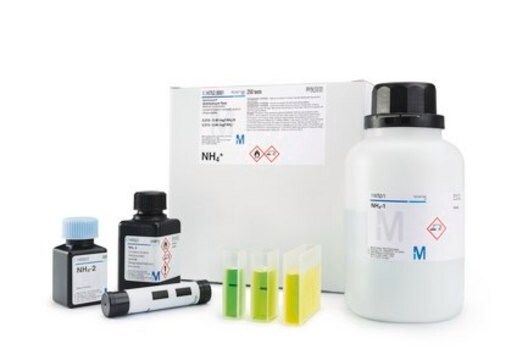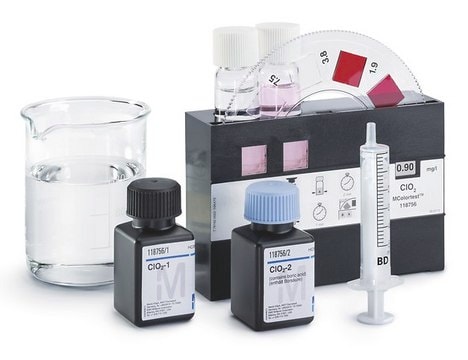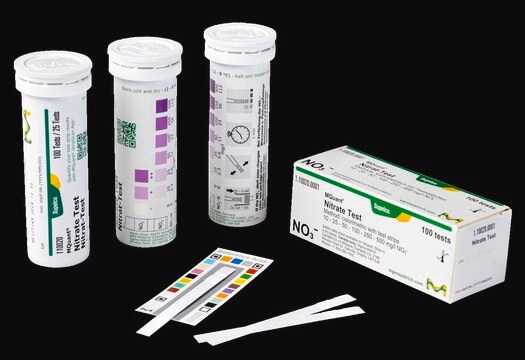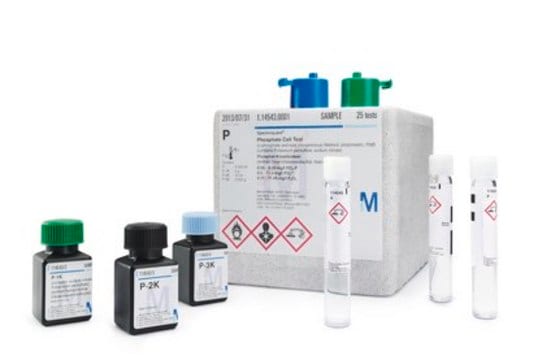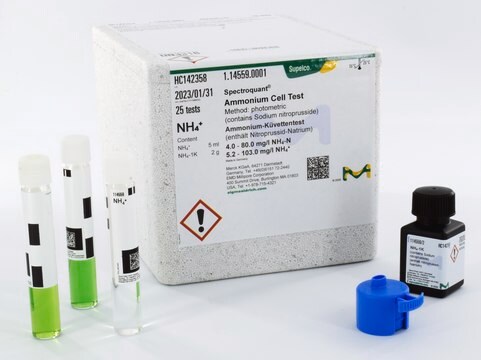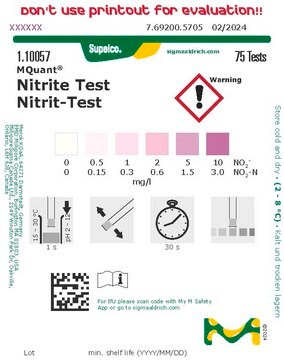1.14776
Nitrite Test, photometric
photometric, 0.002-1.00 mg/L (NO2-N), 0.007-3.28 mg/L (NO2-), Spectroquant®
About This Item
Recommended Products
Product Name
Nitrite Test, photometric, 0.002-1.00 mg/L (NO2-N), 0.007-3.28 mg/L (NO2-), Spectroquant®
product line
Spectroquant®
Quality Level
usage
sufficient for 1000 tests
sufficient for 335 tests (depending on package size)
specific analyte(s)
nitrite
reaction suitability
reaction type: Griess reaction
measuring range
0.002-1.00 mg/L (NO2-N)
0.007-3.28 mg/L (NO2-)
technique(s)
photometry: suitable
compatibility
for use with Spectroquant® Move 100
for use with Spectroquant® Nova 60 A
for use with Spectroquant® Prove 100
for use with Spectroquant® Prove 300
for use with Spectroquant® Prove 600
detection method
photometric (Griess’ reaction)
storage temp.
15-25°C
General description
The method is analogous to EPA 354.1, APHA 4500-NO2- B, and DIN EN 26 777.
This Spectroquant® Nitrate Cell Test allows the accurate quantification of nitrate in water samples. Nitrate is an essential nutrient required for the growth of animals and plants. However, elevated levels of nitrate can be a health risk, in particular for pregnant women and infants. Therefore, nitrate levels in water sources are regulated in many countries.
Method applied: In acidic solution nitrite ions react with sulfanilic acid to form a diazonium salt that reacts with N-(1-naphthyl)ethylenediamine dihydrochloride to form a red-violet azo dye which is determined photometrically.
The Spectroquant® Reagent Test Kits contain highly stable, ready-to-use reagent mixtures to perform the analysis according to the procedure described in the accompanying instruction leaflet.
All our Cell and Reagent Test Kits are equipped with the unique Live ID (2D barcode) which allows seamless method recognition and contains essential information such as lot number, expiry date, and automatic calibration updates.
Application
- Clinical and laboratory features of urinary tract infections in young infants: Discusses diagnostic challenges and characteristics of urinary tract infections in infants, stressing the importance of accurate detection to guide treatment (Lo et al., 2018).
- Differentiating Kawasaki disease from urinary tract infection in febrile children with pyuria and C-reactive protein elevation: Focuses on differential diagnosis in pediatric care, which can influence the choice of nitrite tests for accurate and timely diagnosis (Han and Lee, 2018).
- Early features of Kawasaki disease with pyuria in febrile infants younger than 6 months: Addresses the overlap of urinary symptoms in Kawasaki disease, underscoring the utility of nitrite tests in complex cases (Yoon et al., 2018).
- Current practice on the management of pre-operative urine dipstick results in women undergoing gynaecological surgery in Wales: Reviews procedures related to pre-surgical care in gynaecology, indicating broader applications of nitrite testing in hospital protocols (Walker et al., 2019).
Legal Information
Signal Word
Warning
Hazard Statements
Precautionary Statements
Hazard Classifications
Eye Irrit. 2 - Skin Irrit. 2 - Skin Sens. 1
Storage Class Code
11 - Combustible Solids
WGK
WGK 2
Certificates of Analysis (COA)
Search for Certificates of Analysis (COA) by entering the products Lot/Batch Number. Lot and Batch Numbers can be found on a product’s label following the words ‘Lot’ or ‘Batch’.
Already Own This Product?
Find documentation for the products that you have recently purchased in the Document Library.
Customers Also Viewed
Protocols
Photometric determination using the Griess method subsequent to extraction
Our team of scientists has experience in all areas of research including Life Science, Material Science, Chemical Synthesis, Chromatography, Analytical and many others.
Contact Technical Service